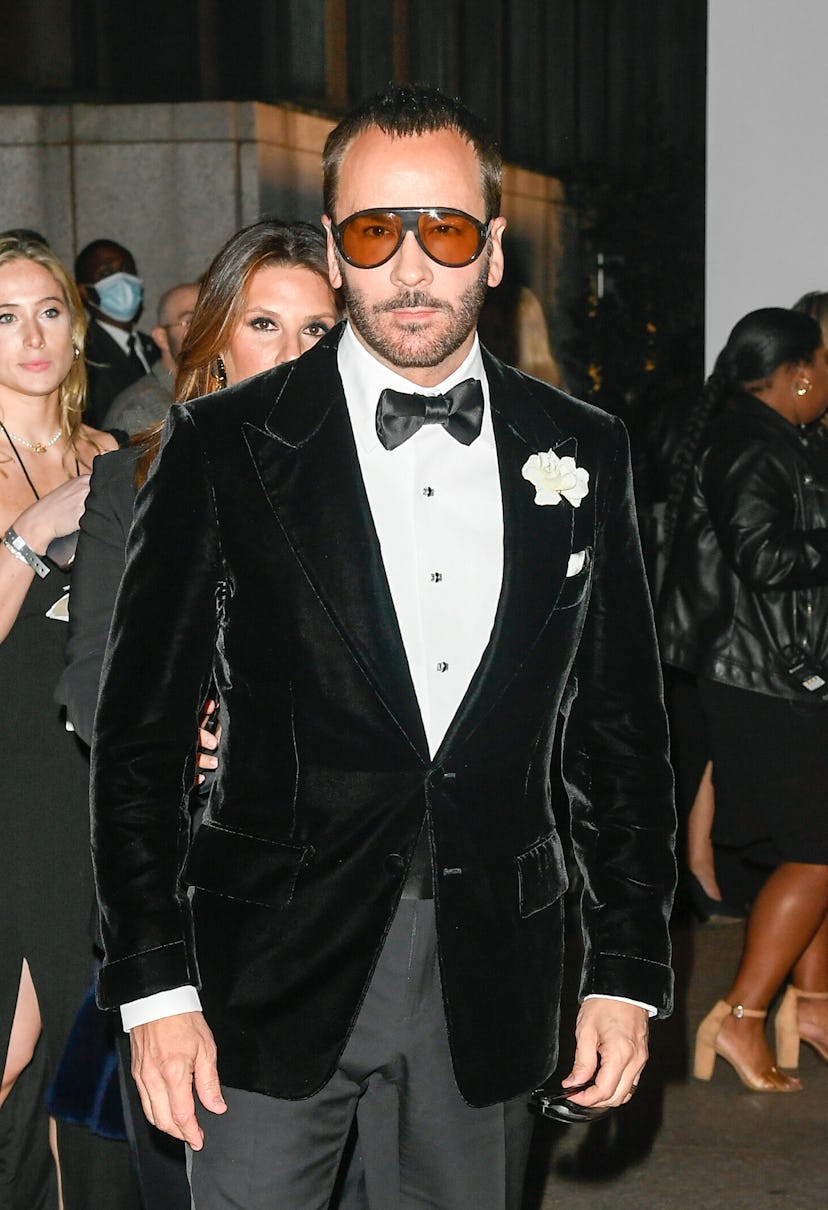Tom Ford Was Just as Unnerved by House of Gucci as You Were

House of Gucci’s premiere over the holiday weekend unleashed an abundance of opinions onto the internet coming from both movie critics and fashion insiders alike. Comments have been made on the debatable campness, Jared Leto’s ham of a performance (complete with enough prosciutto jokes to last a lifetime), and, of course, Lady Gaga’s sometimes questionable accent. Over the weekend, though, one reviewer came out of the woodwork and proved to be the most relevant of all, with quite an interesting perspective on the topic at hand: Tom Ford, who worked at Gucci for almost 15 years and was creative director when Maurizio Gucci was killed at the word of his ex-wife. The designer was frank about his opinions on the movie—the good, the bad, and the downright false, comparing the tale to what he knew to be true and what he saw through his own orange-tinted sunglasses.
Ford didn’t hold back any punches in his review of the movie for Air Mail. The designer started off by saying he “recently survived a screening” of House of Gucci. He then went on to call the film “shiny, ambitious, beautifully filmed and costumed” as well as “stunning” thanks to “the sheer number of stars that have been cast.” That is when the compliments pretty much end, however. Ford reflects that he “felt as though I had lived through a hurricane when I left the theater,” asking himself, “I often laughed out loud, but was I supposed to?”
While Ford is not a movie critic, his perspective on the film is interesting given his proximity to the subject. The designer illustrates his deep connection by explaining that when Maurizio Gucci was shot on March 27, 1995, it was just steps away from Ford’s office in Milan. “Had I not been at our offices in Florence that day, I would certainly have heard the shots that killed him,” he said.
The designer first waxes on Maurizio and Adam Driver’s portrayal of the businessman, saying he was “much more interesting in life than his depiction in the film suggests.” While Driver acts as a subtler presence among his more dramatic costars, Ford describes the real Maurizio as “mercurial,” saying he “would be in a meeting, slip into the bathroom, and come back a completely different person.” Unfortunately, there was no space for this version of Maurizio in a film filled with Gagas and Letos.
Speaking of Leto, Ford quipped that when he was watching the actor portray Paolo Gucci alongside Al Pacino as Aldo Gucci, “I was not completely sure that I wasn’t watching a Saturday Night Live version of the tale.” The designer explained that, while Paolo was “indeed eccentric and did some wacky things,” he was not as “crazed and seemingly mentally challenged” as Leto portrayed him to be.
Ford gives his praise to Jeremy Irons and Salma Hayek before moving on to the “true star” of the film, Gaga. “It is her film, and she steals the show,” Ford says, though he does mention that her “accent migrates occasionally from Milan to Moscow.” Still, Ford calls Gaga’s performance “spot-on,” saying he could not take his eyes off her.
The designer also has some more technical notes. The timeline is messy (Maurizio was bought out of Gucci before Ford stepped in and therefore, never toasted him after a show), the big actors eat up the screen time, allowing no chance for real character development. But Ford’s biggest critique seems to be the general campness surrounding the film.
“I was deeply sad for several days after watching House of Gucci,” he admitted at the end of his review. “It was hard for me to see the humor and camp in something that was so bloody. In real life, none of it was camp. It was at times absurd, but ultimately it was tragic.” Still, Ford admitted that he still believes the movie will be a hit, as Gucci products usually are. “Splash the Gucci name across things and they usually sell.”